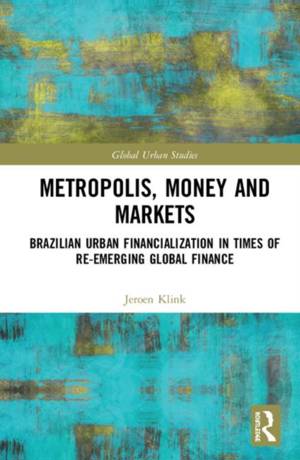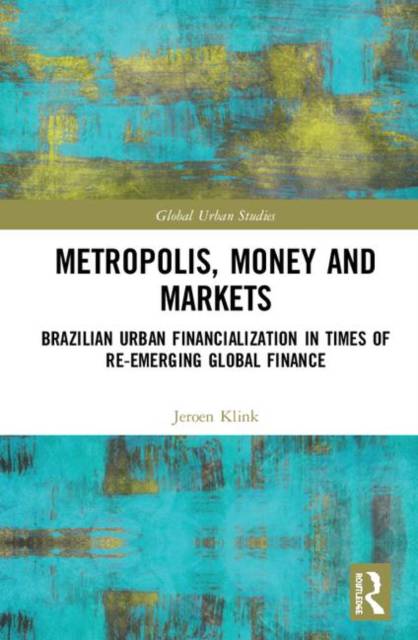
- Afhalen na 1 uur in een winkel met voorraad
- Gratis thuislevering in België vanaf € 30
- Ruim aanbod met 7 miljoen producten
- Afhalen na 1 uur in een winkel met voorraad
- Gratis thuislevering in België vanaf € 30
- Ruim aanbod met 7 miljoen producten
Omschrijving
This book explores the impact of finance on urban spaces as well as cities' role in the social constitution and dissemination of financial logistics and techniques. It brings together literature from different disciplinary areas to increase our understanding of financialization.
It observes how non-financial members of society, such as public bureaucrats, urban planners, the media and so on, are actively involved in the financialization of urban areas. With an explicit focus on Brazil, a developing country in the Global South, the book demonstrates how the country has been grappling with complex and contradictory processes of neoliberalization, decentralization, re-democratization and institutional-legal strengthening of frameworks for urban and regional planning, stressing the relations between urban space and finance capital.
With a distinct view of filling a gap in the current literature on urban financialization, the book aims to focus on less developed areas in this field and link them with the literature on social studies of finance. This makes the text relevant for academics and scholars of urban studies and planning theory, geography, development studies and political economy, as well as scholars in the US and Europe interested in understanding Brazilian patterns of financialization.
Specificaties
Betrokkenen
- Auteur(s):
- Uitgeverij:
Inhoud
- Aantal bladzijden:
- 218
- Taal:
- Engels
- Reeks:
Eigenschappen
- Productcode (EAN):
- 9780367180782
- Verschijningsdatum:
- 21/02/2020
- Uitvoering:
- Hardcover
- Formaat:
- Genaaid
- Afmetingen:
- 156 mm x 233 mm
- Gewicht:
- 569 g

Alleen bij Standaard Boekhandel
Beoordelingen
We publiceren alleen reviews die voldoen aan de voorwaarden voor reviews. Bekijk onze voorwaarden voor reviews.











